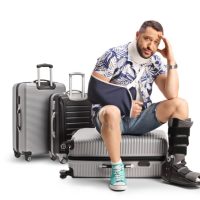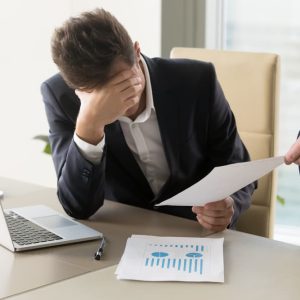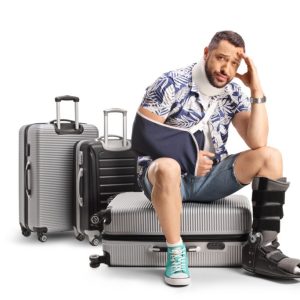Managing Fort Lauderdale’s Tourist Season: Increased Accident Risks and How to Stay Safe

Accidents during Fort Lauderdale’s tourist season likely stem from the sheer volume of roughly 12 million visitors annually. This spike in traffic creates a unique set of challenges for anyone injured in a crash. During peak months like March, crash rates can increase by as much as 40%.
These crashes typically involve out-of-state drivers in rental cars unfamiliar with local traffic patterns, creating complex insurance scenarios with multiple policy layers. As a result, the legal process following a tourist season accident is significantly more complex than standard personal injury claims. You’ll face immediate pressure from multiple insurance adjusters representing different entities, each trying to minimize their company’s liability.
Determining fault, identifying all responsible parties, and maximizing your compensation requires knowledge of Florida’s tourist-heavy accident landscape. Our team at the Law Offices of David M. Benenfeld, P.A. is ready to help. Call us for a straightforward conversation about your situation at (954) 677-0155.
Why the Fort Lauderdale Tourist Season Creates a Perfect Storm for Accidents
The Driver Inexperience Factor
Many visiting drivers are encountering Fort Lauderdale’s streets for the first time, leading to unpredictable, yet dangerous, situations.
-
Unfamiliar Roads: Tourists are not acquainted with Fort Lauderdale’s traffic patterns, one-way streets, or the timing of drawbridges. This lack of local knowledge may cause them to make sudden, unpredictable maneuvers like illegal U-turns or lane changes without signaling.
-
GPS Distraction: A driver relying on a navigation app is a distracted driver. While Florida law bans texting while driving, the intense focus required to follow turn-by-turn directions is a significant, and legal, source of cognitive load that pulls attention away from the road.
The Congestion Multiplier
Our local infrastructure is put under immense strain by the seasonal influx of vehicles, magnifying the risk at every turn.
-
Record-Breaking Traffic: With car accident fatalities already on the rise in recent years, the addition of thousands of tourist vehicles strains our infrastructure to its limits. This density means less room for error and transforms minor mistakes into major collisions.
-
I-95 Proximity: Fort Lauderdale sits directly next to one of the most dangerous stretches of I-95 in the entire country. Tourist traffic feeds directly from this high-speed, high-risk environment onto our local streets, bringing that aggressive driving culture with it.
The “Vacation Mindset” Risk
The relaxed, celebratory mood that draws people to our city can unfortunately translate into reckless behavior behind the wheel.
-
Increased DUI Incidents: People are here to unwind and celebrate, which regrettably leads to a rise in impaired driving.
-
Pedestrian and Cyclist Blindness: Tourists walking or cycling in popular areas like the beach or Las Olas Boulevard are often focused on the sights, not on oncoming traffic. This “vacation blindness” elevates the risk of pedestrian and bicycle accidents.
The Most Common Types of Tourist-Related Accidents We See
Intersection Collisions
Busy intersections become hotspots for tourist-related crashes. Major junctions like US1 & Atlantic Blvd and A1A & Las Olas Blvd are frequent sites of T-bone and rear-end collisions. These typically happen because a visiting driver, confused by the lane configuration or trying to make a last-second turn, misjudges a yellow light or fails to yield the right-of-way.
Rear-End Crashes on Major Roadways
Sudden stops in heavy, stop-and-go traffic are a hallmark of our tourist season, especially on major arteries like Federal Highway. A driver who is looking at their phone, talking to passengers, or simply not accustomed to the accordion-like rhythm of congested traffic could easily cause a chain-reaction crash with a single moment of inattention.
Hit-and-Run Accidents
A frightening trend is the increase in drivers who flee the scene. An out-of-state driver, perhaps in a rental car and unfamiliar with their insurance obligations, may panic and flee, believing they cannot be traced. This creates immediate and serious complications for your insurance claim.
Rideshare and Rental Car Accidents
Accidents involving an Uber, Lyft, or a rental car from a company like Hertz or Avis are not straightforward. They add layers of corporate insurance policies and specific legal procedures that must be addressed correctly from the start.
After the Crash: Protecting Your Rights from Home
Once you are home and safe, the next phase begins.
The Police Report is a Starting Point, Not the Final Word
You may have a copy of the police report, but it is important to view it as a rough draft of the truth. It contains the officer’s initial assessment, often made in a chaotic environment. It is not uncommon for these reports to contain errors or omissions. We frequently find that after a thorough investigation, we uncover details and even witnesses that were missed at the scene.
Your Conversations with Insurance Adjusters
The other driver’s insurance company will likely contact you very quickly. Their goal is to get a recorded statement from you and gather information that could be used to minimize your claim later. You are not obligated to provide a recorded statement without representation. A seemingly innocent comment, like “I’m feeling a bit better today,” could be twisted to imply your injuries are not serious.
If you are unsure how to handle these calls, seek legal guidance.
Documenting Your Experience is Not Optional
Your memory of the pain and disruption caused by the accident is a form of evidence. Keep a simple daily journal.
Note your pain levels on a scale of 1-10, list your medical appointments, track the days you missed from work, and describe any way the injury impacts your daily life. Entries like, “couldn’t lift my child out of the car seat today,” or “had to ask a neighbor for help with groceries,” create a powerful narrative that demonstrates the true scope of your losses.
The 14-Day Rule in Florida
Florida’s Personal Injury Protection (PIP) system is your first line of financial aid for medical bills. However, the law contains a strict deadline. You are required to seek initial medical treatment within 14 days of the accident to be eligible for these benefits.
How Florida Law Shapes Your Accident Claim
What Does “Negligence” Actually Mean?
In the simplest terms, negligence is a legal concept that means someone failed to act with reasonable care, and that failure caused harm to another person. Every driver on the road has a duty of care to operate their vehicle safely and avoid harming others. A tourist who texts while driving or an impaired driver who runs a red light has clearly breached that duty. Our job is to gather the evidence that proves this breach led directly to your injuries and financial losses.
Florida’s “Comparative Fault” System
Florida uses what is known as a modified comparative fault rule. This means that if you are found to be partially at fault for the accident, your final compensation would be reduced by your percentage of fault. However, if you are found to be 51% or more at fault, you cannot recover anything.
The Two-Year Deadline (Statute of Limitations)
In most cases, Florida law gives you two years from the date of an accident to file a personal injury lawsuit. This is known as the statute of limitations. While two years might sound like a long time, it is not. Building a strong case requires a significant amount of work and therefore acting promptly is the best way to preserve your options.
How a Personal Injury Attorney Manages Fort Lauderdale Tourist Accident Cases
We Handle the Investigation
Our team conducts an independent investigation to build a complete and accurate account of the accident. This may involve obtaining traffic camera footage, interviewing witnesses who were missed by police, and, when necessary, subpoenaing cell phone records to prove distraction. We work to establish a clear, undeniable picture of what happened.
We Manage All Communications
Once you retain our firm, we take over all communication on your behalf. This protects you from saying something that could inadvertently harm your claim and ensures that all legal deadlines and paperwork requirements are met properly and on time.
We Identify All Sources of Compensation
An accident with an out-of-state tourist can be a puzzle of insurance policies. There may be coverage available from the at-fault driver’s policy, the policy of the vehicle’s owner (if different), a rental car company’s policy, and even your own uninsured/underinsured motorist (UM) coverage. We work to untangle this web to identify and pursue all available damages you are entitled to under the law.
We Build Your Case for Maximum Value
We work closely with your doctors and other professionals to document the full extent of your injuries. We calculate not only your immediate expenses but also the costs of future medical care, your lost income from missed work, and the non-economic impact the injury has had on your quality of life.
FAQ for Fort Lauderdale Tourist Season Accidents
What if the driver who hit me was from another state or country?
This is a very common scenario in Fort Lauderdale, and our firm has deep experience in handling these exact types of cases. We can file a claim directly with their insurance carrier, regardless of where that company is based. In the event the at-fault driver is uninsured or underinsured, we will immediately explore a claim under your own policy’s Uninsured Motorist (UM) coverage.
I was on a bicycle/scooter when I was hit. Is my case different?
Yes, these cases require a specific approach and a deep understanding of the laws protecting vulnerable road users. We often need to demonstrate the driver’s failure to respect Florida’s laws regarding bicycle and pedestrian right-of-way. These cases frequently hinge on proving the driver was distracted or simply not paying adequate attention to their surroundings.
The insurance company for the other driver offered me a quick settlement. Should I take it?
Early settlement offers are almost always too low. They are a calculated business decision by the insurance company to try and close your case before the full extent of your injuries and financial losses are known. It is always best to review any offer with an attorney before you sign away your rights. Accepting a quick check could mean forfeiting compensation for future medical treatments or lost wages you haven’t even incurred yet.
Does the “Move Over Law” apply to tourist drivers?
Yes, absolutely. All drivers in Florida, including tourists in rental cars, are required to abide by the state’s Move Over Law. This law mandates that drivers move over a lane—or slow down significantly if they cannot move over—for stopped law enforcement, emergency, sanitation, and utility service vehicles. A driver’s failure to obey this law will serve as powerful evidence of their negligence in an accident claim.
Let Our Firm Be Your Guide
Our team at the Law Offices of David M. Benenfeld, P.A. is ready to lift the weight of the legal process from your shoulders. Our focus is to handle the nuances of your case so you are able to focus on your recovery.
Call us today at (954) 677-0155 for a no-cost, no-obligation discussion about your case.





